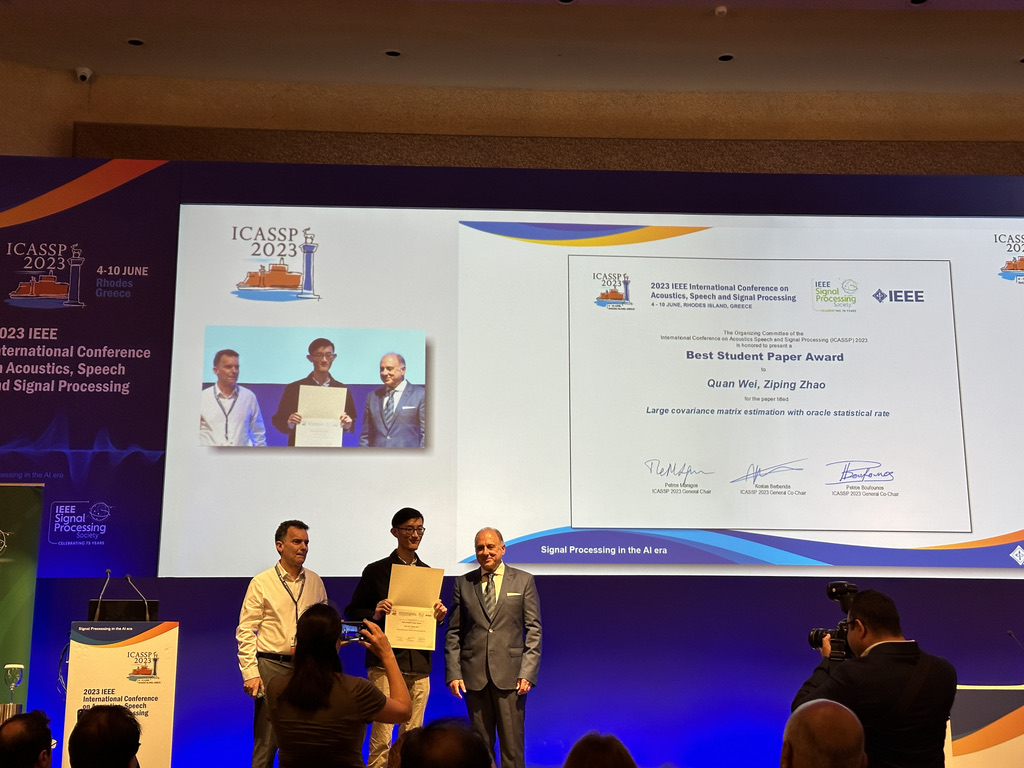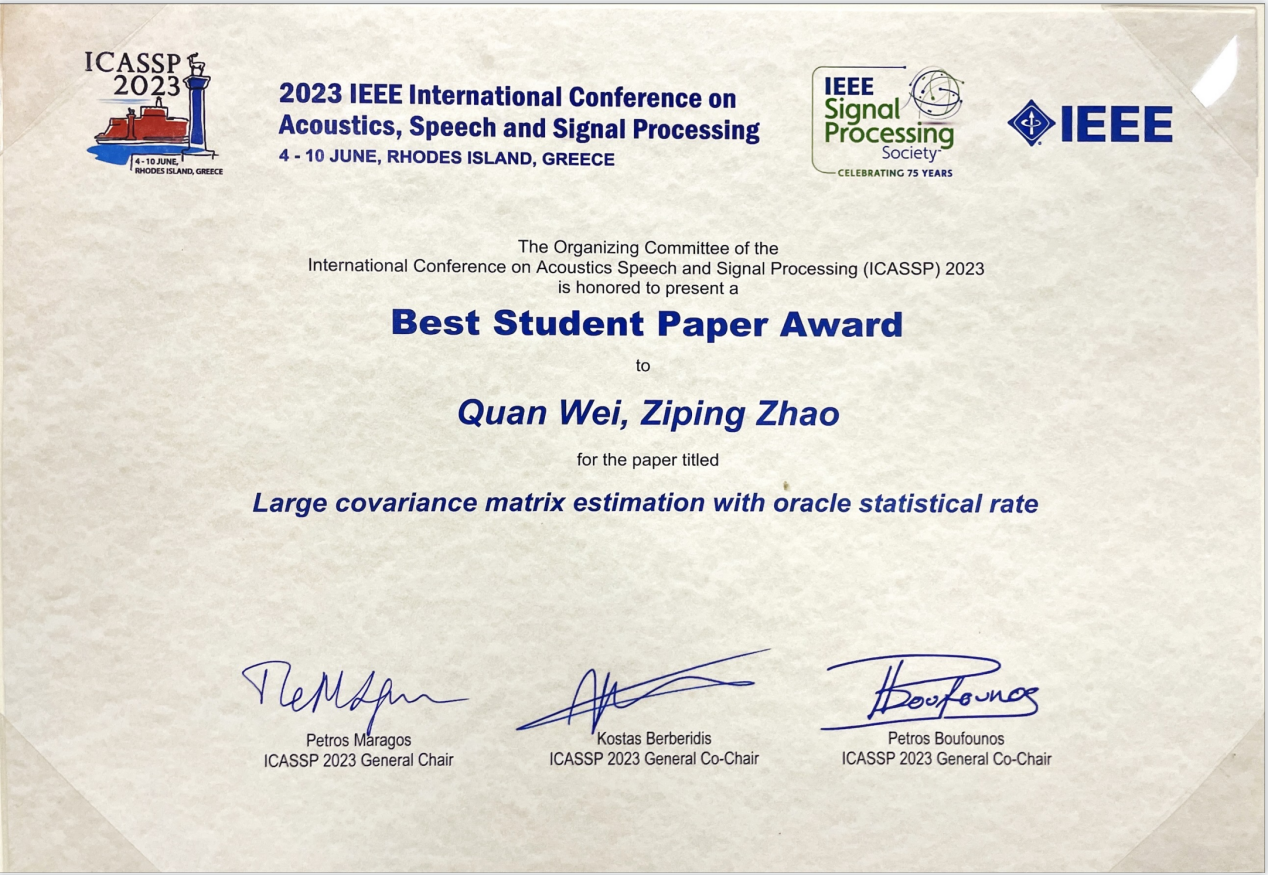Recently, the research titled “Large Covariance Matrix Estimation With Oracle Statistical Rate” by Ziping Zhao’s research group at the School of Information Science and Technology, ShanghaiTech University was honored with the “Best Student Paper Award” at the 2023 48th Institute of Electrical and Electronics Engineers (IEEE) International Conference on Acoustics, Speech and Signal Processing (ICASSP). Quan Wei, a master’s student in Ziping Zhao’s research group, is the first author. Professor Ziping Zhao is the corresponding author.

Picture | At the closing ceremony of the ICASSP conference, the chairman of the conference awarded Quan Wei the “Best Student Paper Award” certificate
ICASSP is an annual flagship conference hosted by the IEEE Signal Processing Society. The papers included in the ICASSP conference cover signal processing theory, methods, and applications in various fields, including acoustics, speech, image, video, communications, radar, networking, biomedicine, etc. This ICASSP conference was held in Rhodes, Greece, from June 4 to 10, 2023, attracting more than 4,000 researchers. The conference received a total of 6,127 submissions from around the world, from which the organizing committee selected five “Best Student Paper Awards.” The shortlisted units include ShanghaiTech University in China, Columbia University in the United States, RWTH Aachen University in Germany, Korea Advanced Institute of Science and Technology, and other universities and scientific research institutions.

Picture | ProfessorZiping Zhao and master student Quan Weitook a group photo at the ICASSP conference
The research results of Ziping Zhao’s research group that won the “Best Student Paper Award” this time mainly studied the problem of covariance matrix estimation in the high-dimensional regime. Covariance estimation is a basic problem in modern multivariate data analysis. It has wide applications in machine learning, signal processing, statistics, finance, and other fields. For example, problems such as data dimensionality reduction in machine learning, beampattern design in signal processing, and portfolio design in quantitative finance all require a good covariance matrix to be estimated in advance. In high-dimensional statistical estimation problems, the singularity of the sample covariance matrix estimator will hinder its practical applications. However, the classic high-dimensional covariance matrix estimation method based on L1 norm will produce biased estimation errors. To solve this problem, Ziping Zhao’s research group proposed to use non-convex penalty to estimate the high-dimensional covariance matrix, and proposed an effective algorithm based on majorization-minimization to solve the problem. The paper proves that the estimator obtained by the algorithm reaches the oracle (optimal) statistical rate. This is the first work in the literature that obtains oracle statistical convergence rate for high-dimensional covariance matrix estimation problems, and has been highly recognized by the reviewers and award committee of the ICASSP conference.

Picture | Award certificate
The main research directions of Ziping Zhao’s research group at the School of Information Science and Technology cover the mathematical theoretical basis of signal processing, machine learning, and data science, with a special focus on computation and statistics related directions. They are committed to building innovative models and proposing efficient algorithms in these fields to address various practical application challenges. The research group has been committed to promoting cutting-edge research in the field of signal processing and has achieved a series of research results. This is the third time that Professor Ziping Zhao has guided students to be shortlisted for the “Best Student Paper Award.” The previous two were at IEEE SAM 2020 (a conference on signal processing for sensor array) and IEEE SPAWC 2021 (a conference on signal processing for communications and networking).
ICASSP award news link:
https://2023.ieeeicassp.org/best-paper-awards/
Paper link:
https://ieeexplore.ieee.org/document/10095334/




 沪公网安备 31011502006855号
沪公网安备 31011502006855号


